
Last week's heavyweight boxing championship bout ended in atypical fashion for an über-violent sport: Deontay Wilder's co-trainer literally threw in the towel from his corner after the fight's seventh round, surrendering the belt to challenger Tyson Fury. Wilder
expressed his own fury at his handler's surrender: "I'm a warrior...I want to go out on my shield...I'd rather die than go out with someone throwing the towel in."
Throwing in the towel is never easy in sports. Think of the hoops coach who orders his team to keep fouling even when down double digits with time expiring. Or the quarterback who uses all of his timeouts despite a three-touchdown fourth-quarter deficit.
The same can be said for politics, which is too often mistaken as sport (a central theme of this too-infrequent
column). This week, there's a hue and cry for certain candidates to quit the Democratic presidential primary...soon...to advantage the party's future. Pete Buttigieg’s withdrawal today is widely being hailed by left of center types, who have also been calling for Amy Klobuchar and Mike Bloomberg to withdraw, in order to consolidate the anti-Bernie Sanders vote around Joe Biden. Meanwhile, Sanders supporters would love for Elizabeth Warren to quit in order to pick off her progressive supporters. Citing poll numbers and electoral results, the pundits and
tweeters suggest that throwing in the towel is necessary and obvious, labeling those who want to go out on their shield as selfish, disloyal, Trump-enabling egomaniacs.
The calculus behind any candidate's decision to abandon a seemingly hopeless campaign, however, is a lot more fraught and complicated. That certainly was my experience.
===
It was Derby weekend, 2007. I was polling in fifth place in a seven-person race in the Kentucky Democratic gubernatorial primary. My fundraising was drying up, and my pathway to victory was appearing more and more obscure.
Three candidates were bunched at the top of the polls: Steve Beshear, whose policy views I largely shared, and two others, whom I liked personally, but whose professional baggage I believed would doom the party's chances against an increasingly unpopular, arch-conservative Republican incumbent.
I started hearing from "friends," who began to gently, then more forcefully, urge me to throw in the towel and endorse Beshear. I reflexively questioned their motives, and I often found their entreaties to be self-serving, patronizing and disingenuous. Frankly, the more prodding, the stiffer my back became: I felt even more strongly that I should go out on my shield. Worse, quitting meant letting down the thousands of people who had contributed to and volunteered for my campaign. Who would ever give me money again or work for me if I abandoned them? Besides, there was always a chance, a hope, a prayer, that the pathway would open. I considered loaning my savings to the campaign and running on third-rail positions I held that would grab public attention and position me as a bold leader: Marriage Equality! (It was 2007). Ban mountaintop coal removal! (I had previously just called for a freeze and study). Merge the state's 120 counties! (Boy, the local officials who endorsed other candidates would be pissed!)
Above everything, my identity had been completely tied to my political status. Even in the eight years I served as State Treasurer, I had always been looking toward the next office, the next step, to feed my burning ambition. If I got off the treadmill now, how would I survive? What would I do for the rest of my life?
I stopped talking to the pols and the consultants, and met with the people who mattered: My wife. My mom. My best friends. We concluded that it was time to let go. I had entered politics to do the right thing. I was now presented an opportunity to demonstrate that. Still, it was the most painful 48 hours of my political career.
I pulled off the bandage. I dropped out and endorsed Beshear. Almost immediately, the profound sadness and anger was replaced with...relief. I was free. Once I removed myself out of the bubble, I realized that life not only would go on, but it would be enriched. As I look back, leaving politics was the
best thing that ever happened to me -- I became a better dad; I was finally comfortable in my own skin, out from under the facade I had constructed to win elections.
There was a happy political ending. Steve Beshear surged in the polls, and won the six-way primary with more than 40% of the vote, obviating the need for a run-off. He won the general election by a landslide, and I served a few years in his administration. He restored integrity to Frankfort, protected education funding in the heart of the recession, expanded Medicaid, and much more. Today, his son, Andy, sits in the Governor's Mansion, bravely exemplifying Democratic values -- my values -- in a deep red state. I can always be proud of the small part I played in this historical moment.
So when you hear yet another TV screaming head proclaiming how obvious it is that so-and-so should quit, remember that the Tip O'Neill maxim is wrong: All politics is not local. All politics is personal. This isn't a game. These are human beings making decisions that can turn their lives upside down, with loyalties to people and causes that really matter to them. Perhaps a candidate will find that hidden pathway to victory. Or discover like me, that throwing in the towel is the best decision they ever made.
I imagine this past weekend was brutal for Pete Buttigieg. But I can assure him, whatever path he follows, that the courage and selflessness he exemplified in quitting will bring him inner strength and peace for a lifetime.
 Last week's heavyweight boxing championship bout ended in atypical fashion for an über-violent sport: Deontay Wilder's co-trainer literally threw in the towel from his corner after the fight's seventh round, surrendering the belt to challenger Tyson Fury. Wilder expressed his own fury at his handler's surrender: "I'm a warrior...I want to go out on my shield...I'd rather die than go out with someone throwing the towel in."
Throwing in the towel is never easy in sports. Think of the hoops coach who orders his team to keep fouling even when down double digits with time expiring. Or the quarterback who uses all of his timeouts despite a three-touchdown fourth-quarter deficit.
The same can be said for politics, which is too often mistaken as sport (a central theme of this too-infrequent column). This week, there's a hue and cry for certain candidates to quit the Democratic presidential primary...soon...to advantage the party's future. Pete Buttigieg’s withdrawal today is widely being hailed by left of center types, who have also been calling for Amy Klobuchar and Mike Bloomberg to withdraw, in order to consolidate the anti-Bernie Sanders vote around Joe Biden. Meanwhile, Sanders supporters would love for Elizabeth Warren to quit in order to pick off her progressive supporters. Citing poll numbers and electoral results, the pundits and tweeters suggest that throwing in the towel is necessary and obvious, labeling those who want to go out on their shield as selfish, disloyal, Trump-enabling egomaniacs.
The calculus behind any candidate's decision to abandon a seemingly hopeless campaign, however, is a lot more fraught and complicated. That certainly was my experience.
===
It was Derby weekend, 2007. I was polling in fifth place in a seven-person race in the Kentucky Democratic gubernatorial primary. My fundraising was drying up, and my pathway to victory was appearing more and more obscure.
Three candidates were bunched at the top of the polls: Steve Beshear, whose policy views I largely shared, and two others, whom I liked personally, but whose professional baggage I believed would doom the party's chances against an increasingly unpopular, arch-conservative Republican incumbent.
I started hearing from "friends," who began to gently, then more forcefully, urge me to throw in the towel and endorse Beshear. I reflexively questioned their motives, and I often found their entreaties to be self-serving, patronizing and disingenuous. Frankly, the more prodding, the stiffer my back became: I felt even more strongly that I should go out on my shield. Worse, quitting meant letting down the thousands of people who had contributed to and volunteered for my campaign. Who would ever give me money again or work for me if I abandoned them? Besides, there was always a chance, a hope, a prayer, that the pathway would open. I considered loaning my savings to the campaign and running on third-rail positions I held that would grab public attention and position me as a bold leader: Marriage Equality! (It was 2007). Ban mountaintop coal removal! (I had previously just called for a freeze and study). Merge the state's 120 counties! (Boy, the local officials who endorsed other candidates would be pissed!)
Above everything, my identity had been completely tied to my political status. Even in the eight years I served as State Treasurer, I had always been looking toward the next office, the next step, to feed my burning ambition. If I got off the treadmill now, how would I survive? What would I do for the rest of my life?
I stopped talking to the pols and the consultants, and met with the people who mattered: My wife. My mom. My best friends. We concluded that it was time to let go. I had entered politics to do the right thing. I was now presented an opportunity to demonstrate that. Still, it was the most painful 48 hours of my political career.
I pulled off the bandage. I dropped out and endorsed Beshear. Almost immediately, the profound sadness and anger was replaced with...relief. I was free. Once I removed myself out of the bubble, I realized that life not only would go on, but it would be enriched. As I look back, leaving politics was the best thing that ever happened to me -- I became a better dad; I was finally comfortable in my own skin, out from under the facade I had constructed to win elections.
There was a happy political ending. Steve Beshear surged in the polls, and won the six-way primary with more than 40% of the vote, obviating the need for a run-off. He won the general election by a landslide, and I served a few years in his administration. He restored integrity to Frankfort, protected education funding in the heart of the recession, expanded Medicaid, and much more. Today, his son, Andy, sits in the Governor's Mansion, bravely exemplifying Democratic values -- my values -- in a deep red state. I can always be proud of the small part I played in this historical moment.
So when you hear yet another TV screaming head proclaiming how obvious it is that so-and-so should quit, remember that the Tip O'Neill maxim is wrong: All politics is not local. All politics is personal. This isn't a game. These are human beings making decisions that can turn their lives upside down, with loyalties to people and causes that really matter to them. Perhaps a candidate will find that hidden pathway to victory. Or discover like me, that throwing in the towel is the best decision they ever made.
I imagine this past weekend was brutal for Pete Buttigieg. But I can assure him, whatever path he follows, that the courage and selflessness he exemplified in quitting will bring him inner strength and peace for a lifetime.
Last week's heavyweight boxing championship bout ended in atypical fashion for an über-violent sport: Deontay Wilder's co-trainer literally threw in the towel from his corner after the fight's seventh round, surrendering the belt to challenger Tyson Fury. Wilder expressed his own fury at his handler's surrender: "I'm a warrior...I want to go out on my shield...I'd rather die than go out with someone throwing the towel in."
Throwing in the towel is never easy in sports. Think of the hoops coach who orders his team to keep fouling even when down double digits with time expiring. Or the quarterback who uses all of his timeouts despite a three-touchdown fourth-quarter deficit.
The same can be said for politics, which is too often mistaken as sport (a central theme of this too-infrequent column). This week, there's a hue and cry for certain candidates to quit the Democratic presidential primary...soon...to advantage the party's future. Pete Buttigieg’s withdrawal today is widely being hailed by left of center types, who have also been calling for Amy Klobuchar and Mike Bloomberg to withdraw, in order to consolidate the anti-Bernie Sanders vote around Joe Biden. Meanwhile, Sanders supporters would love for Elizabeth Warren to quit in order to pick off her progressive supporters. Citing poll numbers and electoral results, the pundits and tweeters suggest that throwing in the towel is necessary and obvious, labeling those who want to go out on their shield as selfish, disloyal, Trump-enabling egomaniacs.
The calculus behind any candidate's decision to abandon a seemingly hopeless campaign, however, is a lot more fraught and complicated. That certainly was my experience.
===
It was Derby weekend, 2007. I was polling in fifth place in a seven-person race in the Kentucky Democratic gubernatorial primary. My fundraising was drying up, and my pathway to victory was appearing more and more obscure.
Three candidates were bunched at the top of the polls: Steve Beshear, whose policy views I largely shared, and two others, whom I liked personally, but whose professional baggage I believed would doom the party's chances against an increasingly unpopular, arch-conservative Republican incumbent.
I started hearing from "friends," who began to gently, then more forcefully, urge me to throw in the towel and endorse Beshear. I reflexively questioned their motives, and I often found their entreaties to be self-serving, patronizing and disingenuous. Frankly, the more prodding, the stiffer my back became: I felt even more strongly that I should go out on my shield. Worse, quitting meant letting down the thousands of people who had contributed to and volunteered for my campaign. Who would ever give me money again or work for me if I abandoned them? Besides, there was always a chance, a hope, a prayer, that the pathway would open. I considered loaning my savings to the campaign and running on third-rail positions I held that would grab public attention and position me as a bold leader: Marriage Equality! (It was 2007). Ban mountaintop coal removal! (I had previously just called for a freeze and study). Merge the state's 120 counties! (Boy, the local officials who endorsed other candidates would be pissed!)
Above everything, my identity had been completely tied to my political status. Even in the eight years I served as State Treasurer, I had always been looking toward the next office, the next step, to feed my burning ambition. If I got off the treadmill now, how would I survive? What would I do for the rest of my life?
I stopped talking to the pols and the consultants, and met with the people who mattered: My wife. My mom. My best friends. We concluded that it was time to let go. I had entered politics to do the right thing. I was now presented an opportunity to demonstrate that. Still, it was the most painful 48 hours of my political career.
I pulled off the bandage. I dropped out and endorsed Beshear. Almost immediately, the profound sadness and anger was replaced with...relief. I was free. Once I removed myself out of the bubble, I realized that life not only would go on, but it would be enriched. As I look back, leaving politics was the best thing that ever happened to me -- I became a better dad; I was finally comfortable in my own skin, out from under the facade I had constructed to win elections.
There was a happy political ending. Steve Beshear surged in the polls, and won the six-way primary with more than 40% of the vote, obviating the need for a run-off. He won the general election by a landslide, and I served a few years in his administration. He restored integrity to Frankfort, protected education funding in the heart of the recession, expanded Medicaid, and much more. Today, his son, Andy, sits in the Governor's Mansion, bravely exemplifying Democratic values -- my values -- in a deep red state. I can always be proud of the small part I played in this historical moment.
So when you hear yet another TV screaming head proclaiming how obvious it is that so-and-so should quit, remember that the Tip O'Neill maxim is wrong: All politics is not local. All politics is personal. This isn't a game. These are human beings making decisions that can turn their lives upside down, with loyalties to people and causes that really matter to them. Perhaps a candidate will find that hidden pathway to victory. Or discover like me, that throwing in the towel is the best decision they ever made.
I imagine this past weekend was brutal for Pete Buttigieg. But I can assure him, whatever path he follows, that the courage and selflessness he exemplified in quitting will bring him inner strength and peace for a lifetime.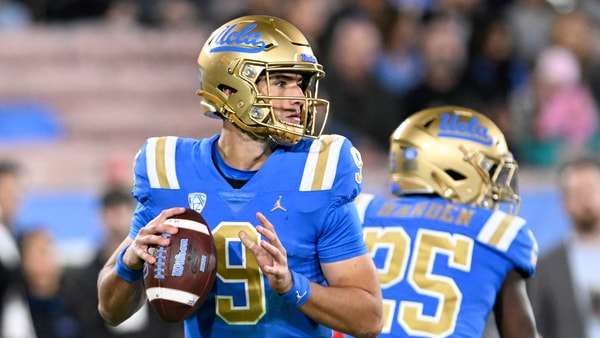
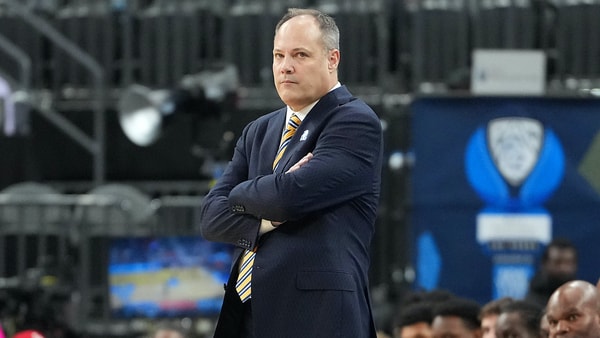
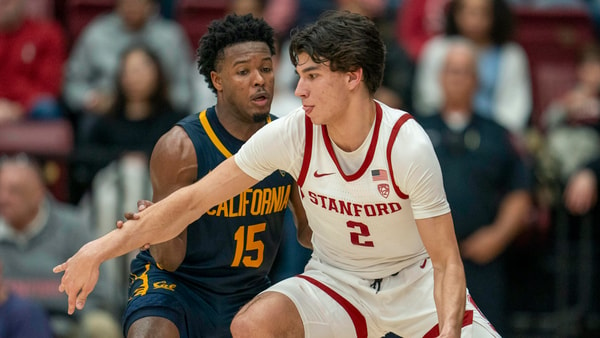
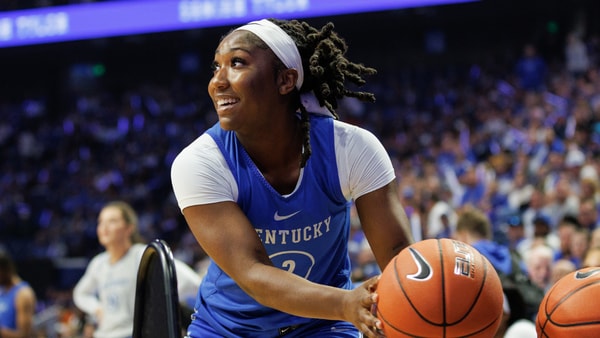
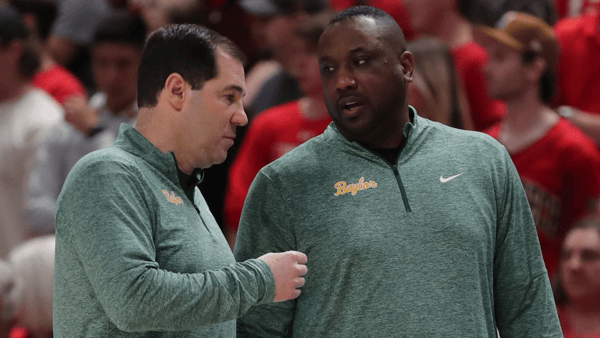
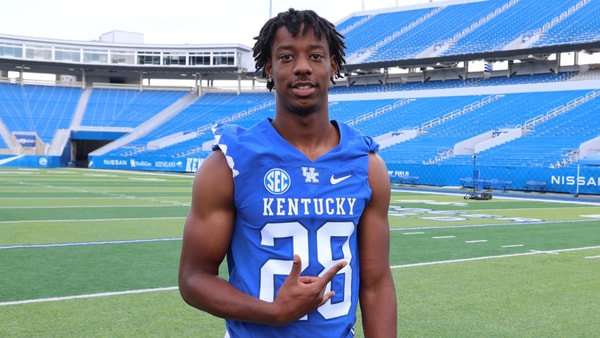
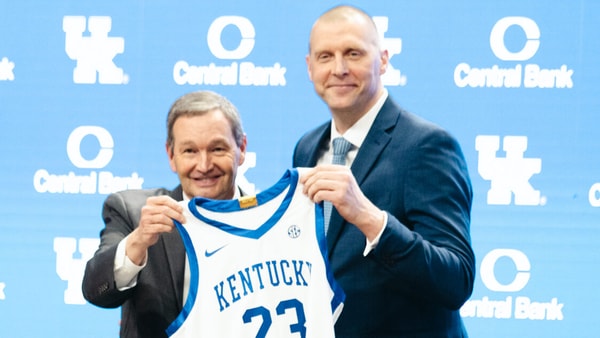
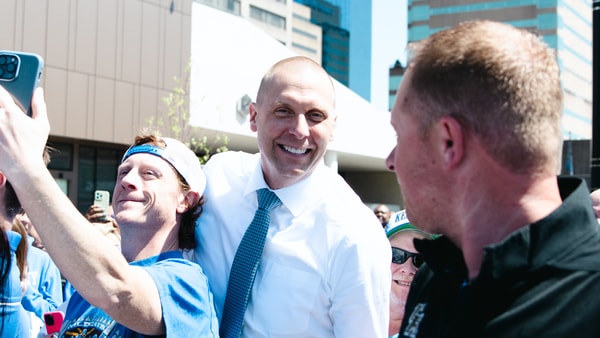
Discuss This Article
Comments have moved.
Join the conversation and talk about this article and all things Kentucky Sports in the new KSR Message Board.
KSBoard